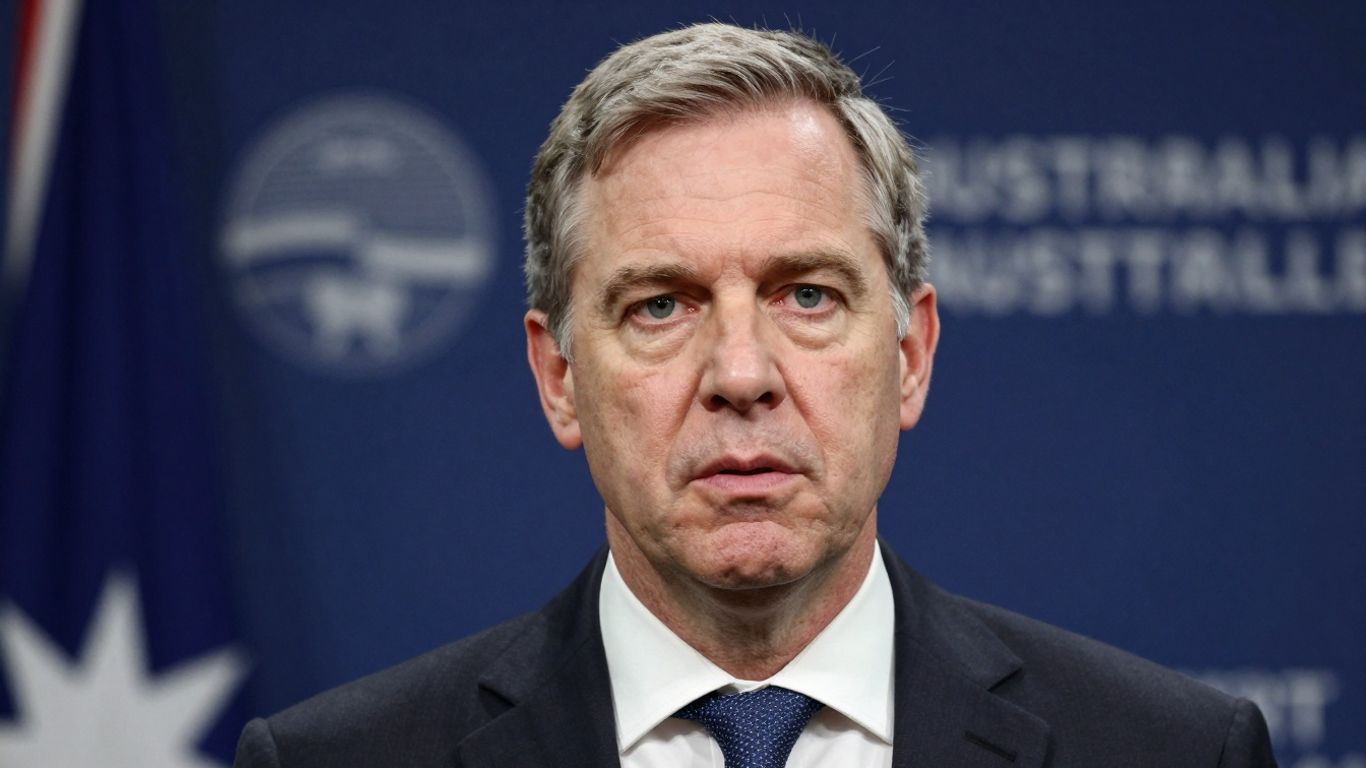Right then, 2024 is here and it’s time to get our finances sorted. If you’re down under and looking to get a better handle on your money, you’ve come to the right place. We’ll cover some straightforward finance tips 2024 to help you plan ahead and feel more in control. It’s not about being a genius with money, just making smart choices.
Key Takeaways
- Figure out where your money is actually going by looking at your income and expenses.
- Set clear, achievable goals for your money, like saving for a house deposit or paying off a credit card.
- Make a budget and stick to it; it’s the backbone of good money management.
- Build up a bit of a safety net for unexpected stuff – an emergency fund is a lifesaver.
- Consider getting professional advice to help you make the best choices for your situation.
Mastering Your Money: Essential Finance Tips 2024

Getting your finances sorted for 2024 is all about taking a good, hard look at where you’re at and figuring out where you want to go. It sounds a bit daunting, I know, but honestly, it’s not as complicated as it seems. Think of it like planning a road trip – you wouldn’t just jump in the car without knowing your destination or how much petrol you’ll need, right? Your money situation is much the same.
Assess Your Current Financial Situation
First things first, you need to know your starting point. This means getting a clear picture of your income, your expenses, and any debts you might have. Don’t just guess; actually track it for a month. You might be surprised where your money is actually going. A simple spreadsheet or one of those budgeting apps can really help here. It’s about understanding your cash flow – when money comes in and when it goes out.
Define Your Financial Goals
Once you know where you stand, you can start thinking about where you want to be. What do you want to achieve financially in 2024? Maybe it’s saving for a deposit on a house, paying off a credit card, or even just building up a bit of a buffer for unexpected stuff. Make these goals specific. Instead of ‘save more money’, try ‘save $500 by June for a new washing machine’.
Prioritise Your Goals
It’s unlikely you can do everything at once, so you’ll need to decide what’s most important. If you’ve got a stack of credit card debt with high interest, that probably needs to be tackled before you start saving for a fancy holiday. Think about what will give you the most peace of mind or the biggest financial win. It’s a bit like deciding which road to take first on that road trip – you want to get the most important bits done early on.
Building a Solid Financial Foundation
Getting your finances in order is like laying the groundwork for a house. You wouldn’t build on shaky foundations, right? The same applies to your money. A strong financial base means you’re better equipped to handle whatever life throws your way, from unexpected bills to exciting opportunities.
Creating a Budget
Look, budgeting gets a bit of a bad rap. Some people think it’s all about spreadsheets and saying no to everything fun. But honestly, it’s just about knowing where your money is going. It’s not about restriction; it’s about control. You can use apps that link to your bank accounts, or just jot things down. The key is to see your income versus your spending. A popular way to start is the 50/30/20 rule: 50% for needs (rent, bills), 30% for wants (going out, hobbies), and 20% for savings and debt repayment. But honestly, whatever works for you is the best rule.
Building an Emergency Fund
This is your financial safety net. Stuff happens – a car breakdown, a sudden medical bill, or even losing your job. An emergency fund means you don’t have to go into debt or derail your other financial goals when these things pop up. Most experts suggest having enough to cover three to six months of your essential living costs. If your income is a bit unpredictable, or you’re self-employed, aiming for closer to 12 months is a good idea. Start small, even if it’s just $20 a week, and put it in an account you can access easily.
Automate Savings and Investments
This is probably the easiest way to make sure you’re actually saving money. If you set up automatic transfers from your everyday account to your savings or investment accounts, you won’t even miss the money. It’s like paying yourself first. Before you have a chance to spend it, the money is already put aside for your future goals. Whether it’s a bit extra into your superannuation or a separate savings account, setting up these automatic payments makes sticking to your plan much, much simpler. You’re basically tricking yourself into being good with money, and there’s no shame in that!
The most effective strategy is to pay yourself first. Before covering any other expenses, set aside money for savings and investments to ensure your future financial security.
| Category | Recommended Allocation |
|---|---|
| Needs | 50% |
| Wants | 30% |
| Savings/Debt | 20% |
Smart Strategies for Debt Management

Dealing with debt can feel like a mountain to climb, but it’s totally doable with the right approach. It’s not just about paying bills; it’s about making a plan that actually works for your life here in Australia.
Tackling High-Interest Debts
When you’ve got debts hanging around, especially those with high interest rates like credit cards, they can really eat into your budget. The key is to get a handle on which ones are costing you the most. The ‘avalanche’ method is a popular way to go about this. You pay the minimum on all your debts except for the one with the highest interest rate. Throw as much extra cash as you can at that one. Once it’s paid off, you move to the debt with the next highest interest rate. This way, you save the most money on interest over time.
Here’s a quick look at how it works:
- List your debts: Write down everything you owe, including the interest rate and minimum payment for each.
- Target the highest interest: Focus your extra payments on the debt with the highest interest rate.
- Pay minimums elsewhere: Keep up with the minimum payments on all other debts.
- Roll over payments: Once a debt is cleared, add its minimum payment plus your extra payment to the next highest interest debt.
It’s important to remember that not all debt is created equal. A mortgage, for instance, might have a lower interest rate and can even be a tool to help you invest elsewhere, whereas credit card debt usually carries much higher rates and should be a priority to clear.
Leveraging Credit Card Rewards Wisely
Credit cards can be handy, especially if you’re smart about using their rewards programs. Think of frequent flyer points or cashback offers. However, you should only use rewards if you’re paying off your balance in full each month. If you’re carrying a balance, the interest you pay will almost always outweigh any rewards you earn. It’s a bit like getting a discount on something you don’t really need if you’re not careful. Always check the terms and conditions of your rewards program to make sure you’re getting the most out of it without falling into a debt trap. For more on managing your finances, you can look at Australia’s government debt.
Understanding Good vs. Bad Debt
It’s a common question: is all debt bad? Generally, we want to minimise debt, but some types can be more beneficial than others. ‘Good’ debt is typically associated with investments that are likely to increase in value or generate income, like a mortgage on a property you plan to rent out, or sometimes even student loans if they lead to a higher-paying career. ‘Bad’ debt, on the other hand, is usually for depreciating assets or consumption, like credit card debt for everyday purchases or loans for a car that loses value the moment you drive it off the lot. Focusing on paying down bad debt aggressively while managing good debt wisely is a solid financial move.
Planning for Life’s Milestones
Life throws all sorts of curveballs, doesn’t it? One minute you’re just trying to get by, the next you’re thinking about buying a house, or maybe even starting a family. It’s a lot to get your head around, but planning for these big moments is actually pretty important if you want to feel secure.
Saving for Major Purchases
Got your eye on something big? Whether it’s a new car, a holiday that’s been ages in the making, or even a deposit for a home, you’ll need a plan. Start by figuring out exactly how much you need and by when. Then, break it down into smaller, manageable chunks. Setting up a separate savings account, maybe a high-interest one if you can find a good deal, can make a difference.
Here’s a rough idea of how you might save for a car:
| Item | Total Cost | Savings Needed Per Month (12 Months) |
|---|---|---|
| Used Car | $15,000 | $1,250 |
| Car Insurance | $1,200 | $100 |
| Rego & CTP | $600 | $50 |
| Total | $16,800 | $1,400 |
Setting Up Children’s Education Funds
If you’ve got kids, or are planning to, thinking about their education costs down the track is a smart move. University fees, textbooks, living expenses – it all adds up. You could look into options like a family trust or a dedicated education savings plan. The earlier you start, the less pressure there’ll be later on. Even putting away a small amount regularly can grow significantly over time thanks to compounding.
- Start saving as soon as possible.
- Consider setting up automatic transfers to a dedicated account.
- Research different investment options that suit your risk tolerance.
Thinking about your kids’ future education costs now means you’re giving them a better chance at achieving their dreams without the added burden of massive student debt. It’s a gift that keeps on giving.
Preparing for Unexpected Events
Life’s not always smooth sailing. Things like losing your job, a medical emergency, or even just a major appliance breaking down can really mess with your finances. This is where having a solid emergency fund comes in. Aim to have enough saved to cover three to six months of your living expenses. This fund should be easily accessible, like in a savings account, so you can get to it when you really need it. It’s all about building a safety net so these unexpected events don’t completely derail your financial progress.
Navigating Taxes and Financial Advice
Sorting out your taxes and getting good advice can really make a difference to your financial future. It’s not just about lodging your tax return; it’s about making sure you’re not paying more than you need to and that your money is working as hard as it can for you.
Catching Up on Unpaid Taxes
If you’ve fallen behind on your tax obligations, it’s best to sort it out sooner rather than later. The Australian Taxation Office (ATO) can charge interest and penalties on overdue amounts. The first step is usually to contact the ATO directly to discuss your situation. They often have options like payment plans available. Ignoring the problem will only make it worse, with interest and potential penalties adding up.
Understanding Tax Implications
Different financial decisions have different tax outcomes. For example, how you structure your investments, whether you’re self-employed, or even how you receive certain benefits can affect your tax bill. It’s worth looking into things like:
- Tax deductions: What expenses can you legitimately claim to reduce your taxable income?
- Tax offsets: These directly reduce the amount of tax you owe.
- Capital gains tax: This applies when you sell an asset like shares or property for more than you paid for it.
- Superannuation contributions: Understanding how your super contributions are taxed can help you make the most of this important retirement savings vehicle.
Thinking about your tax situation shouldn’t be a once-a-year event. Integrating tax considerations into your regular financial planning can lead to significant savings over time.
Seeking Professional Financial Guidance
Sometimes, the tax system and financial planning can feel a bit overwhelming. That’s where professionals come in. You might consider talking to:
- A registered tax agent or accountant: They can help you prepare and lodge your tax returns, identify deductions, and offer advice on tax planning. This is especially helpful if you have complex income streams or are self-employed.
- A qualified financial planner: They can help you create a broader financial plan that includes investment strategies, superannuation, insurance, and how these all interact with your tax situation. Look for planners who are licensed and transparent about their fees.
Choosing the right professional can save you money and stress in the long run. Don’t be afraid to ask potential advisors about their qualifications, experience, and how they charge for their services.
Continuous Improvement in Your Financial Journey
Keeping your finances in good shape isn’t a one-off job; it’s more like tending a garden. You’ve got to keep at it, making little adjustments here and there to make sure everything’s growing nicely.
Taking Financial Courses
Look, nobody’s born knowing everything about money. There are heaps of free or low-cost courses out there, often run by community centres or online. They can teach you stuff like how to understand shares, what a mortgage really means, or even just how to get your head around superannuation. It’s a good way to pick up new skills and feel more confident about your money decisions.
Regularly Reviewing and Adjusting Goals
Your life changes, right? So your financial goals should too. Maybe you got a pay rise, or perhaps you decided to buy a house sooner than you thought. It’s a good idea to sit down at least once a year, maybe when your birthday rolls around, and have a proper look at your goals. Are they still realistic? Do they still make sense for where you are now?
Here’s a quick way to check in:
- Income: Has it changed? Up or down?
- Expenses: Are you spending more or less on certain things?
- Goals: Are they still the same, or have priorities shifted?
- Life Events: Did you get married, have kids, or change jobs?
Overcoming Common Financial Challenges
Sometimes things don’t go to plan. You might overspend one month, or an unexpected bill pops up. That’s normal. The trick is not to let it derail you completely.
If you find yourself spending more than you earn, it’s easy to get discouraged. But instead of giving up, try to figure out where the extra money went. Maybe it was a few too many coffees, or a spontaneous online purchase. Once you know, you can make a plan to cut back next time.
Common hurdles include:
- Underestimating Costs: Always add a bit extra for unexpected expenses when you’re budgeting.
- Putting Things Off: Set reminders on your phone for when you need to check your finances or pay bills.
- Impulse Buys: Give yourself a 24-hour cooling-off period before buying non-essential items.
It’s all about learning from what happens and tweaking your approach. You’ve got this.
Wrapping Up Your 2024 Financial Journey
So, there you have it. Getting your finances sorted for 2024 doesn’t have to be a massive headache. We’ve looked at setting clear goals, making a budget that actually works, and even how to use those credit card rewards to your advantage. Remember, it’s not about being perfect overnight, but about making steady progress. Start small, stay consistent, and don’t be afraid to ask for help if you need it, whether that’s from a mate or a pro. Your future self will thank you for taking these steps today.
Frequently Asked Questions
How do I figure out where my money is going?
Start by looking at all the money coming in and going out. See how much you earn and where your money goes. This helps you figure out what you can save and what you need to spend on.
What’s the best way to set money goals?
Set clear goals, like saving for a car or paying off a credit card. Make sure your goals are specific, you can measure them, they’re achievable, they matter to you, and they have a deadline. For example, ‘I want to save $1000 for a holiday by December by saving $100 each month.’
Why is an emergency fund important and how much should I have?
It’s smart to have a safety net for unexpected stuff, like losing your job or a surprise medical bill. Aim to save enough to cover three to six months of your living costs. Keep this money somewhere easy to get to, like a savings account.
Should I pay off my debts first?
Yes, paying off debts with high interest rates, like credit cards, should be a top priority. The less interest you pay, the more money you have for other things.
How can I make saving money a habit?
Setting up automatic transfers from your bank account to your savings or investment accounts makes saving easier. You’re less likely to spend the money if you don’t see it in your everyday account.
When should I get help from a financial expert?
It’s a good idea to chat with a financial advisor. They can help you understand your options, make a plan, and make sure you’re making the best choices for your money, especially when it comes to taxes and investments.





